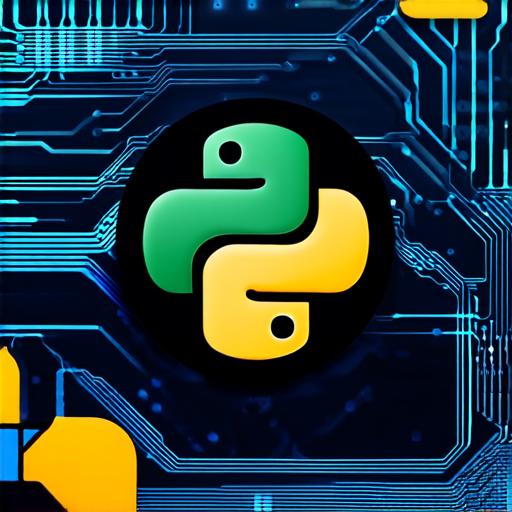Can Python be utilized to develop Android applications?
Android is one of the most popular operating systems for mobile devices, and developers have many tools at their disposal when building apps for this platform. However, some developers may wonder if they can use Python, a popular programming language, to develop Android applications. In this article, we will explore this topic and see whether it is possible to use Python to build Android apps.
Python vs Java: A Brief Overview
Before we delve into the specifics of using Python to develop Android apps, let’s first take a look at the two main programming languages used for Android app development: Java and Kotlin.
Java is an object-oriented language that has been around since the early days of Android. It is a mature language with a large community of developers and a wealth of resources available. However, it can be somewhat verbose, which can make it more difficult to read and maintain.
Kotlin, on the other hand, is a newer programming language that was developed specifically for Android app development. It is designed to be more concise and easier to read than Java, and it also provides better performance and improved memory management. Kotlin has quickly become the preferred language for Android developers, but not all apps are built with it.
Python: A Popular Language
Now that we have a brief overview of the two main programming languages used for Android app development, let’s take a look at Python. Python is a high-level programming language that was created in the late 1980s by Guido van Rossum. It is designed to be easy to read and write, making it a popular choice for beginners and experts alike.
Python vs Java: A Comparison
Now that we have a brief overview of both Java and Python, let’s compare the two languages and see how they stack up when it comes to Android app development.

- Performance: In general, Java is faster than Python due to its use of the Java Virtual Machine (JVM) which provides better performance and memory management. However, Python has improved in this area with the introduction of new tools such as Numba, which can significantly speed up numerical computations.
- Learning Curve: Python is generally considered easier to learn than Java due to its clean syntax and readability. This makes it a good choice for beginners who are just starting out in app development.
- Development Speed: Python has a rich set of libraries and frameworks that can help developers get started quickly, which makes it faster to develop apps using Python than Java.
- Community Support: Both languages have large communities of developers who contribute to their development, but Java has been around for much longer, so there is more established support available.
Can Python be used to develop Android apps?
Now that we have compared the two languages let’s take a look at whether Python can actually be used to develop Android apps. The answer is yes, it is possible to use Python to build Android apps, but there are some limitations and challenges to consider.
- Python is not a native language for Android: Unlike Java and Kotlin, which are the two main programming languages used for Android app development, Python is not a native language for this platform. This means that developers will need to use a tool or framework to translate their Python code into Java or Kotlin, which can be more time-consuming than using these languages directly.
- Performance: As mentioned earlier, Python may not perform as well as Java or Kotlin due to its lack of native support for the Android platform.
- Limited libraries and frameworks: While there are many libraries and frameworks available for Python, not all of them are compatible with Android app development. Developers will need to carefully select their tools to ensure that they have access to the features they need.
- Development speed: While Python has a rich set of libraries and frameworks that can help developers get started quickly, this may not necessarily translate into faster development times for Android apps due to the additional steps required to translate the code into Java or Kotlin.
Real-life Examples
Despite the challenges, there are many real-life examples of Python being used to develop Android apps. For example, Pycharm, a popular IDE for Python development, has built-in support for Android app development, making it easier for developers to get started with this platform. Additionally, some popular libraries and frameworks, such as Kivy, can be used to build Android apps using Python.
FAQs
Q: Can Python be used to develop Android apps?
A: Yes, but there are some limitations and challenges to consider. Python is not a native language for Android, and it may not perform as well as Java or Kotlin due to its lack of native support for the platform. Additionally, there are limited libraries and frameworks available for Python that are compatible with Android app development, and development speed may be slower due to the additional steps required to translate the code into Java or Kotlin.
Q: What are the main advantages of using Python for Android app development?
A: Python has a large and active community of developers, making it easier to find support and resources. Additionally, Python is a flexible language that can be used for a wide range of tasks, which makes it well-suited for Android app development. Python also has many libraries and frameworks available that can help developers get started quickly.
Q: What are the main disadvantages of using Python for Android app development?
A: Python is not a native language for Android, so it may not perform as well as Java or Kotlin due to its lack of native support for the platform. Additionally, there are limited libraries and frameworks available for Python that are compatible with Android app development, which can make it more difficult to access certain features. Finally, development speed may be slower due to the additional steps required to translate the code into Java or Kotlin.
Q: What is the best way to get started with developing an Android app using Python?
A: Pycharm, a popular IDE for Python development, has built-in support for Android app development, making it easier to get started with this platform. Additionally, some popular libraries and frameworks, such as Kivy, can be used to build Android apps using Python. Finally, it is important to carefully select the tools and resources available to ensure that you have access to the features you need.
